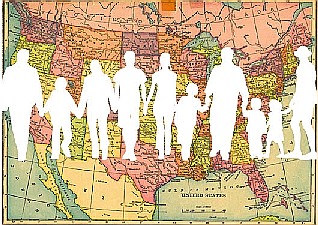SO I think I have a pretty good  idea as to who I am as an instructor, such that I would definitely say I’ve developed an instructor identity. While the majority of my research evolves around linguistic and sexual identities, it suddenly occurred to me while composing an email to my parents that I don’t think they know who I am…as a writer. This led me to considering whether or not I could say that I have developed an identity or identities as a writer. For example, they don’t read me as a regular textual communicator (we don’t chat, im, text, or email all that regularly or to any great extent). I haven’t written a letter or postcard to my parents in about 15 years (and yes, I understand that although 15 years is a significant period of development for me, it has seemed like a matter of seconds to them). They know me really only through verbal communication, mostly via the telephone. That brings me to consider how I communicate differently in writing vs speaking, and the concept of distance vs closeness and its influence on communication.
idea as to who I am as an instructor, such that I would definitely say I’ve developed an instructor identity. While the majority of my research evolves around linguistic and sexual identities, it suddenly occurred to me while composing an email to my parents that I don’t think they know who I am…as a writer. This led me to considering whether or not I could say that I have developed an identity or identities as a writer. For example, they don’t read me as a regular textual communicator (we don’t chat, im, text, or email all that regularly or to any great extent). I haven’t written a letter or postcard to my parents in about 15 years (and yes, I understand that although 15 years is a significant period of development for me, it has seemed like a matter of seconds to them). They know me really only through verbal communication, mostly via the telephone. That brings me to consider how I communicate differently in writing vs speaking, and the concept of distance vs closeness and its influence on communication.
So what does it take for an identity to have formed? It’s formed if we can observe it? What are the common characteristics? There must be degrees of identity formation and key events that contribute to and shape formation. What does it take for one to be aware of the identity?
So in my dissertation I theorize that participation and imagination both assist the development of an identity. If I imagine myself to belong to a community of writers and imagine that I am a writer via my own multiple definitions (personal or other), then I can be a writer. This “to be a (noun)” act is significant in that labeling legitimizes existence. But it is also the act of writing, the participatory behavior, that legitimizes the label.
So it’s not surprising that I like to begin my writing courses with discussions of what it means to write and to be a writer. I ask, “Are you a writer?” If so, why. If not, then why not?











